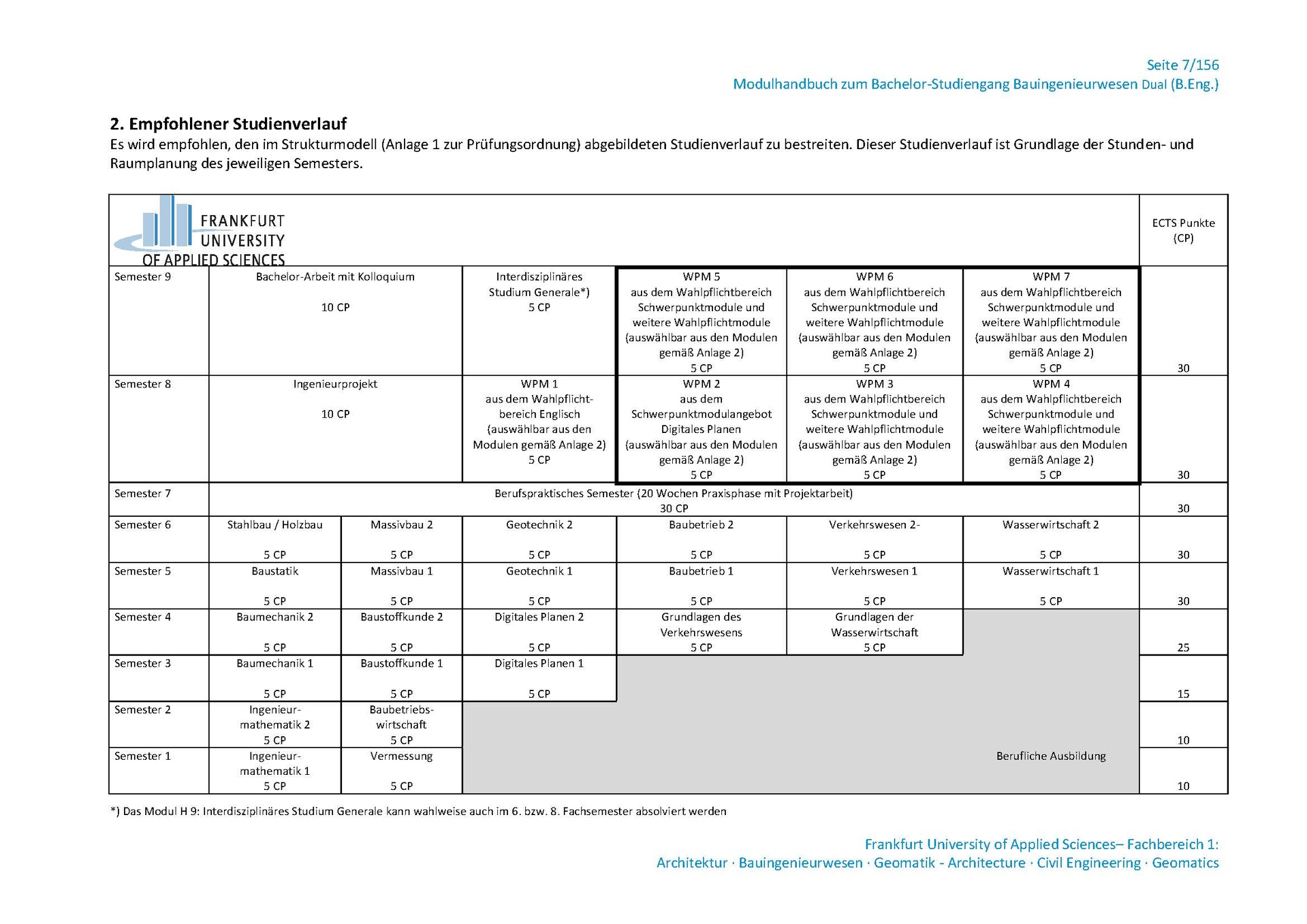The Civil Engineering Dual Program combines the studies of civil engineering with the vocational training to become a skilled worker in the building industry or a trade.
The studies focus on well-founded and practice-oriented training to become an engineer with the basic skills in planning, measuring and constructing. The students also train their social and personal competencies as well as their method expertise next to further expanding their expert knowledge. The degree course civil engineering prepares you optimally for the extensive tasks in all fields of civil engineering.
Summary
Program | Civil Engineering Dual Program |
Terms | 9 Semester, Dual Program |
ECTS-Credit Points | 210 |
Program start | Summer semester |
Application deadlines | until the beginning of the lectures |
Languages | German |
Accreditation
This degree course was accredited by ACQUIN e.V. till 30.09.26.
Access the Academic calendar.
Training with our cooperation partners
In collaboration with our cooperation partners we can offer the training to become a:
- EBL-Bildungszentrum Frankfurt/Main of the BILDUNGSWERK Hessen-Thüringen e.V.: bricklayer, concrete and steel-reinforced concrete constructor, carpenter or canal and pipeline installation contractor
- Painters' trade guild Maler- und Lackiererinnung Rhein-Main: Painters and varnishers
Course catalogue
Modularization during the studies is a study structure, in which courses such as lectures, exercises, practical internships, excursions, excursions or seminars about certain topics are combined in modules. The structure of a module is determined by the competence, which is to be achieved upon completion of the module.
The module manual entails information on the duration, credits, type of examination, requirements, study results, workload, type of learning, content, literature, and the representative of the module of a degree course. Further information can be found in the guideline on modularization and credit point awarding of the Bund-Länder commission. The module overview and the study content can be downloaded in form of a PDF.
Admission requirements
The combination of vocational training and academic studies within the first four semesters, is agreed upon in an additional agreement to the vocational training agreement (template in accordance with attachment 6 of the examination regulation). The application for a dual training requires the completion of a vocational training agreement and the completion of the above mentioned additional agreement with the training organization. The compliance to the regular course of studies is ensured if the vocational training starts at least 8 months prior to the beginning of the academic training (August 1, of the previous year). The EBL Bildungszentrum Frankfurt of the Bildungswerks Bau Hessen-Thüringen e.V. coordinates the simultaneous training at a training organization as a skilled worker in one of the following construction professions: Bricklayer, concrete and steel-reinforced concrete constructor, carpenter, canal and pipeline installation contractor, road builder
Required documents for the enrollment: Higher education entrance qualification, as well as vocational training agreement and additional agreement to the vocational training agreement for the Dual Program civil engineering.
Prospects
The dual program allows students to recognize opportunities, develop personal perspectives and plan their career start at an early point in time. At the same time, construction companies can promote trainees and agree to binding contracts.
These studies do not only enable the graduate to think in technical, ecological and legal categories, but also lets the graduate act in an appropriate and responsible manner in daily work life. Civil engineers hereby contribute in a relative extent to maintaining and securing an adequate quality of life. Civil engineers work in building construction and civil engineering, in engineering and planning offices, technical administrations of municipalities, the federal states and the federal government, service companies of the building, traffic infrastructure, water management and organizations with activities in the technical development assistance.
After the completion of the bachelor's degree the graduate can directly start his/her career or continue his/her training in form of a master's degree, which will allow the graduate to continue with a doctorate afterwards.







